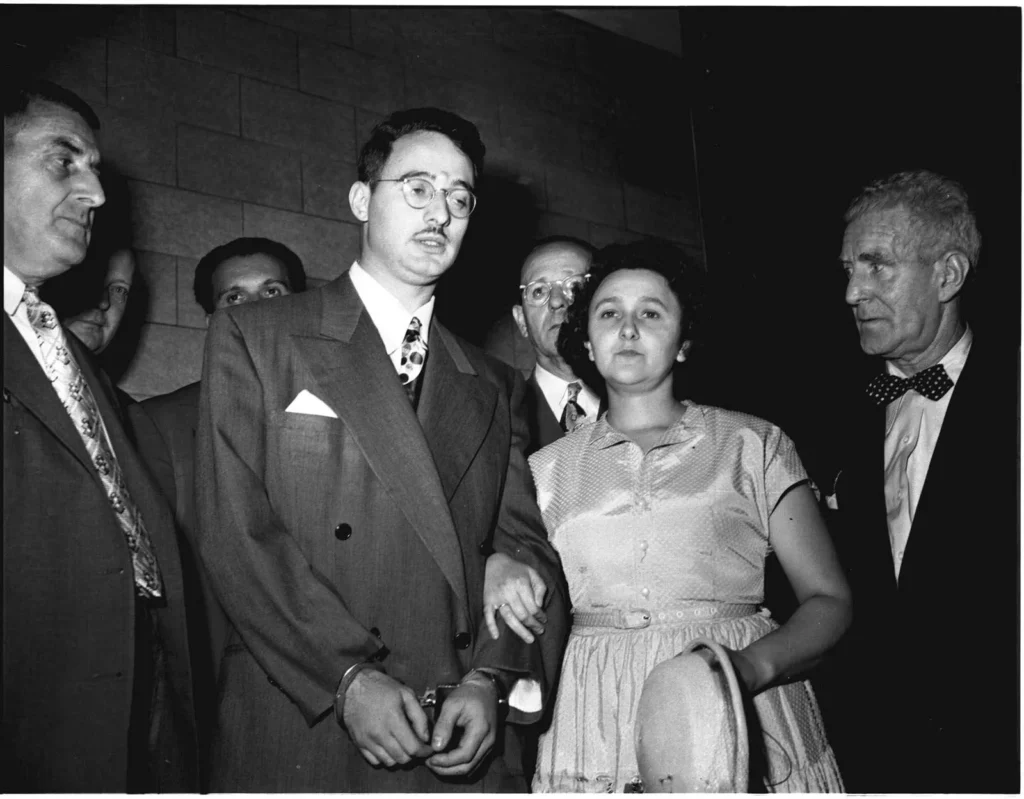On July 17, 1950, Julius Rosenberg was arrested on suspicion of espionage. Rosenberg was arrested based on the confession of another Soviet spy, David Greenglass’s confession. The following month, on August 11, Julius’s wife, Ethel, was arrested after testifying before a grand jury. J Edgar Hoover and others believed that if they brought Ethel into the case, they could use her as leverage against her husband.

The Rosenburg’s trial began on March 6, 1951. The case’s primary witness, David Greenglass, testified that he turned over a sketch of the cross-section of an implosion-type atom bomb. The bomb he was referring to was the atomic bomb dropped on Nagasaki, Japan.
The Rosebergs were convicted of espionage on March 19, 1951. A few days later, on April 5, they were sentenced to death under Section 2 of the Espionage Act of 1917. Judge Irving Kaufman said that he held the Rosenbergs responsible for espionage and believed they had blood on their hands for American deaths in Korea.
On February 11, 1953, President Dwight D. Eisenhower denied all appeals for clemency for Julius and Ethel Rosenberg. Despite pleas from figures like Pablo Picasso, Albert Einstein, and Pope Pius XII, President Eisenhower stated that “The nature of the crime for which they have been found guilty and sentenced far exceeds that of the taking of the life of another citizen; it involves the deliberate betrayal of the entire nation and could very well result in the death of many, many thousands of innocent citizens. By their act these two individuals have in fact betrayed the cause of freedom for which free men are fighting and dying at this very hour [in Korea].”
Julius and Ethel Rosenberg were executed via the electric chair on June 19, 1953.

Leave a Reply